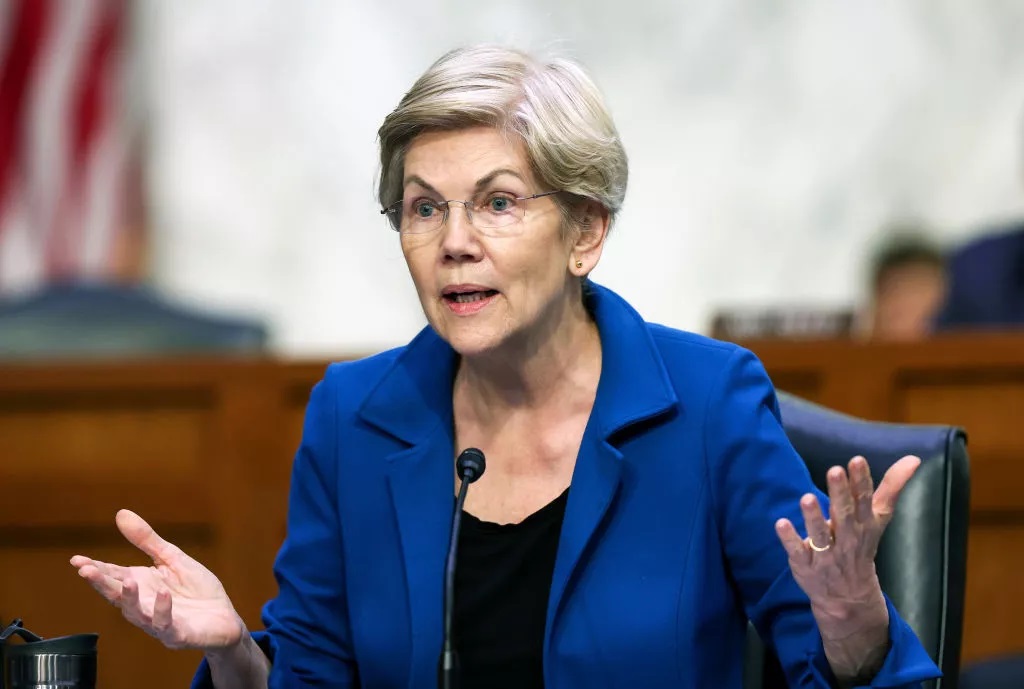Sen. Warren Urges FCC to Block Standard General’s Acquisition of Tegna
“FCC should block any transaction that it knows is likely to harm competition or the public interest such as Standard General’s proposed acquisition of Tegna,” Warren said

WASHINGTON, D.C.—U.S. Senator Elizabeth Warren (D-Mass.) has sent a letter to Federal Communications Commission (FCC) Chair Jessica Rosenworcel urging the agency to block Standard General’s proposed acquisition of broadcaster Tegna.
The $8.6 billion deal has been under review by the FCC since it was first proposed in February of 2022 and is likely to drag on until at least February, 2023.
The deal has drawn criticism from consumer groups and unions who have worried that it will lead to layoffs and cuts in local news. Pay TV operators and groups representing them have also attacked the deal for reducing competition and giving Standard General too much power in retransmission agreements, which in turn could raise prices for pay TV services.
In filings shortly before the end of 2022, Standard General reiterated a number of promises it had made earlier by pledging not to lay off newsroom staff and to abide by conditions proposed by pay TV-operator backed groups in negotiations for retransmission consent agreements.
Standard General also recently launched a website promoting the deal that listed a large number of supporters from a variety of civil rights groups and leaders, including Jesse Jackson.
In the letter to the FCC Senator Warren called on the agency to use its authority under the Communications Act to block the deal to promote competition and address increasing consolidation in the media industry.
“The FCC has significant and underutilized authorities to protect competition in the media industry by preventing deals that harm the public interest or reduce competition…I urge you to fulfill your statutory duty by blocking this acquisition,” wrote Senator Warren, who has been a longtime advocate of much stricter anti-trust regulations and enforcement.
Get the TV Tech Newsletter
The professional video industry's #1 source for news, trends and product and tech information. Sign up below.
In the letter, Warren argues that the deal presents straightforward competition concerns given that Tegna and Standard General both own stations in overlapping media markets. This means the deal will reduce the number of competitors that can place spots on television for advertisers, produce programming for television audiences, and employ workers in those markets, Warren argued.
The Senator also argued that this complex financial transaction involving both Standard General and Apollo Global Management, which owns the Cox Media Group and other stations, could further threaten competition down the road through higher consumer prices, employee layoffs, and easier collusion, which all could violate antitrust laws.
Warren did note that Standard General had issued a series of promises to the FCC in December of 2022. Those promised that after the deal is completed, (i) they will irrevocably leave in place the retransmission fees that apply to any Tegna station; (ii) they will not lay off any journalism or newsroom staff for a minimum of two years; and (iii) Standard General and Tegna, on the one hand, and Apollo, on the other hand, will not share any nonpublic competitively sensitive information or enter sidecar agreements with each other.
Warren, however. doubted that those problems would prove adequate. “In light of the poor track record of both structural and behavioral remedies with regard to protecting competition, Federal Trade Commission (FTC) Chair Lina Khan recently expressed her belief that `agencies should more frequently consider opposing problematic deals outright' rather than imposing remedies of any sort,” Warren noted.
“You have an enormous opportunity to protect workers and consumers nationwide by using this authority aggressively in this matter,” concluded the Senator.
The full text of the letter can be found here.
George Winslow is the senior content producer for TV Tech. He has written about the television, media and technology industries for nearly 30 years for such publications as Broadcasting & Cable, Multichannel News and TV Tech. Over the years, he has edited a number of magazines, including Multichannel News International and World Screen, and moderated panels at such major industry events as NAB and MIP TV. He has published two books and dozens of encyclopedia articles on such subjects as the media, New York City history and economics.

